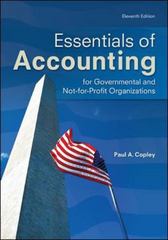Question
. Effect of hedging on cash holdings. Corporations care for liquidity buffers to smooth cash flow shocks in adverse market conditions. Especially, the cash flows
. Effect of hedging on cash holdings. Corporations care for liquidity buffers to smooth cash flow shocks in adverse market conditions. Especially, the cash flows of electric utilities are heavily impacted by seasonal weather conditions: for example, in a hotter-than-usual summer, electricity demand boosts the earning of electric utilities (e.g., everybody turns on their air conditioners), whereas in a cooler-than-usual summer, electric utilities may suffer from poor earnings. The exposure to such weather risk depends on where each electric utility is located: utilities located in stable weather regions (low weather volatility) may not face much cash flow uncertainty due to weather conditions, whereas those located in volatile weather regions (high weather volatility) may face great cash flow uncertainty due to weather conditions. In 1997, weather derivatives were introduced for firms to hedge such weather risk. That is, firms are able to buy weather derivative contracts that pay when seasonal weather is milder than usual.

Based on the plot above, what is the net effect of weather derivatives on cash holdings of electric utilities (i.e., how much does the availability of weather derivatives increases or decreases cash holdings divided by assets)? Describe what method you used, and explain why it measures the net impact of weather derivatives on cash holdings divided by assets. Assume that lines of credit are not available, and cash holdings are the only means to secure liquidity reserves. 2. Suppose a company borrows $1 million debt to invest in a project that generates uncertain cash flow (revenue) of 0~$2 million. The debt has to be repaid (interest rate is zero) when the projects cash flow is realized. Clearly mark where the lines start, end and change direction. 2-1. (1point) Reconsider the case of strategic default covered in class except lets assume 20% bankruptcy cost (note: in class, we considered 50% bankruptcy cost). That is, Assume 20% of the cash flow (revenue) is lost upon bankruptcy (i.e., when debtholders control the firm). Also, assume that renegotiations are allowed and the manager may be allowed to stay if debtholders find it better than firing. Upon renegotiation debt and equity holders have 2:3 bargaining power. Draw value of debt, equity, and the company.
30 25 20 Cash / assets (%) 15 10 5 High Weather Volatility Low Weather Volatility 0 1990 1991 1992 1993 1994 1995 1996 1997 1998 1999 2000 30 25 20 Cash / assets (%) 15 10 5 High Weather Volatility Low Weather Volatility 0 1990 1991 1992 1993 1994 1995 1996 1997 1998 1999 2000
Step by Step Solution
There are 3 Steps involved in it
Step: 1

Get Instant Access to Expert-Tailored Solutions
See step-by-step solutions with expert insights and AI powered tools for academic success
Step: 2

Step: 3

Ace Your Homework with AI
Get the answers you need in no time with our AI-driven, step-by-step assistance
Get Started


